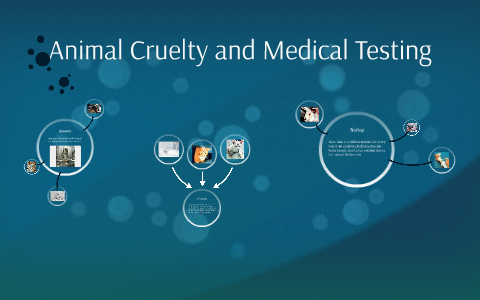In recent years, the topic of animal testing has ignited fervent debates surrounding the ethics of using living beings for scientific and medical research. The inherent question arises: is animal testing deemed a form of animal cruelty? This complex issue requires an exploration of various facets, including the scientific justifications for such practices, the moral implications, and the potential alternatives that have emerged within this contentious field.
At the heart of this discussion lies the definition of animal cruelty itself. The American Society for the Prevention of Cruelty to Animals (ASPCA) delineates animal cruelty as the infliction of unnecessary suffering or harm upon animals. Thus, when exploring animal testing, it is crucial to differentiate between the intent behind scientific research and the resultant distress experienced by animal subjects. Proponents of animal testing argue that it is an indispensable tool for advancing human health. They assert that testing on animals has enabled profound medical breakthroughs, producing vaccines and treatments for various diseases. Nonetheless, this perspective invariably raises ethical dilemmas that must be addressed.
One primary justification for animal testing is its role in safeguarding human health. Research conducted on animal models can yield critical insights into disease processes, facilitating the development and testing of potential therapies before they are introduced to humans. This sequential approach provides a shield against the dangers posed by untested medications. Furthermore, regulations established by entities such as the Food and Drug Administration (FDA) necessitate the employment of animal testing to ensure that drugs are safe for human consumption. While the scientific community cites these prerequisites as crucial for public health, the moral dimensions invoke misgivings regarding the categorization of sentient beings as mere research instruments.
As we delve deeper into the ethical quandary, it is imperative to acknowledge the complexity of animal sentience. Research has shown that many animals possess sophisticated cognitive and emotional capabilities. They experience pain, stress, and joy in ways comparable to humans. The argument that animals exist solely to serve human ends has been widely contested; critics maintain that this viewpoint is fundamentally flawed and manifests a significant moral failing. Hence, the question remains: can any justification for animal testing outweigh the ethical implications regarding the treatment of these animals?
In response to the arguments supporting animal testing, a plethora of ethical theories provide a counter-narrative. For instance, utilitarianism, which espouses maximizing overall happiness and minimizing suffering, poses a substantial challenge to animal experimentation. The moral cost incurred, measured in the suffering endured by test subjects, risks overshadowing potential human benefits. Additionally, rights-based theories argue for the intrinsic rights of animals as living beings entitled to certain protections, irrespective of their utility to human interests. This dichotomy creates a rift between scientific necessity and moral responsibility, further complicating the discourse surrounding animal testing.
Moreover, advancements in technology have introduced alternative methodologies for testing that may mitigate the need for animal subjects. In vitro methods, such as cell cultures, offer viable pathways for experimentation without the ethical burden of animal suffering. These techniques have been increasingly embraced by scientists, yielding promising results with reduced ethical implications. Furthermore, computer modeling and simulations create predictions based on biological systems, potentially reducing reliance on living organisms. As society moves into an era defined by technological innovation, the feasibility of alternatives to animal testing has garnered attention, prompting calls for regulatory changes that prioritize these humane solutions.
Public sentiment towards animal testing has shifted substantially over the years, leading to increased scrutiny of practices traditionally deemed acceptable. In light of this cultural transformation, the concept of animal rights has ascended to prominence within societal consciousness, catalyzing movements toward more humane treatment of all living beings. This phenomenon underscores the reciprocal relationship between ethical perspectives and scientific practices, where the evolution of societal morals oftentimes influences developments in research methodologies.
Nevertheless, detractors of the anti-testing sentiment emphasize the potential ramifications of abolishing animal testing altogether. They contend that without rigorous testing on animal models, the advancement of critical medical research may be hindered, possibly impeding the development of cures for numerous afflictions that plague humanity. Such assertions further complicate the issue, pitting the potential welfare of animals against the tangible benefits afforded to humans. Striking a balance between these competing interests remains a significant focus for ethical discourse in the field of medical research.
The necessity of addressing the moral dilemma surrounding animal testing extends beyond mere academic inquiry; it demands an active engagement with the implications of choices made within the scientific community. The juxtaposition of prevailing justifications against the ethical quandary invites continuous dialogue, compelling both researchers and advocates to reconsider their positions. In this vein, fostering greater transparency in research practices plays an instrumental role in bridging the gap between ethical responsibility and scientific advancement.
In summation, the convergence of medical justifications and moral imperatives encapsulates the ongoing debate surrounding animal testing and its classification as animal cruelty. As society grapples with these complex questions, it must remain vigilant in evaluating the broader impact of its choices. In line with evolving ethical standards, a conscientious approach to animal testing necessitates an unwavering commitment to seeking humane alternatives that honor the lives of all beings while pursuing advancements that enhance human health.








